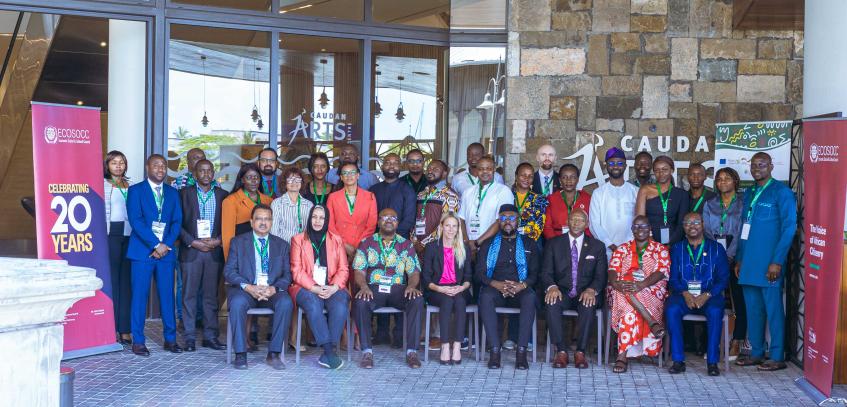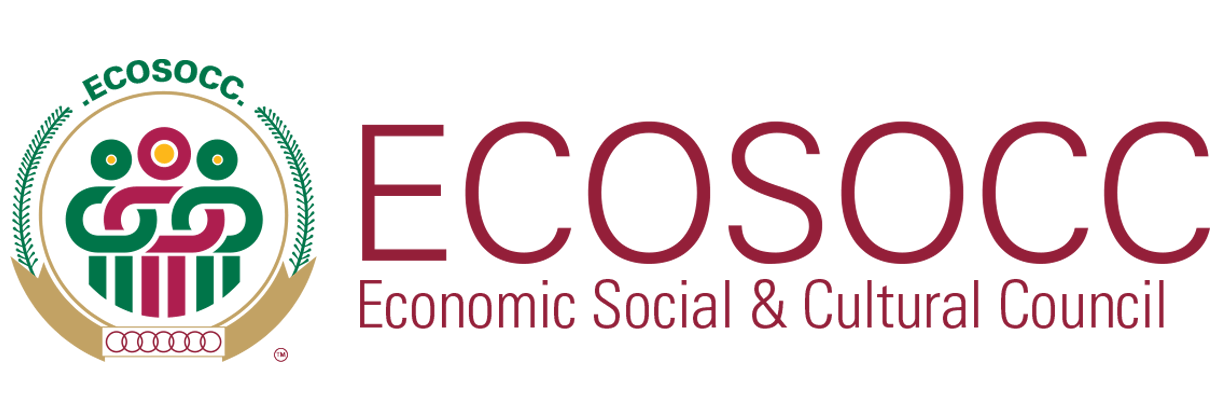Port-Louis, Mauritius - November 27, 2024
The African Union's Economic, Social, and Cultural Council (ECOSOCC), in collaboration with international partners, has officially launched the Multistakeholder Dialogue on Strengthening Africa's Civil Society Role in Tax Governance.
The dialogue convenes African civil society organizations to address the critical challenges of Illicit Financial Flows (IFFs) and advocate for enhanced transparency in natural resource governance across Africa.
Opening the dialogue, Mr. William Carew, Head of the ECOSOCC Secretariat, described the event as a "powerful testament to our shared determination to confront pressing challenges affecting the economic sovereignty and future of our beloved continent."
He further expressed gratitude to the Government of Mauritius for hosting the event and highlighted the contributions of key partners, including the African Union Commission's Department of Economic Development, Tourism, Trade, Industry, Minerals (ETTIM) the Tax Justice Network (TJNA), the African Tax Administration Forum (ATAF), Trust Africa, Transparency International, Oxfam International, the Financial Transparency Coalition, ActionAid International, SEATINI, Coalition for Dialogue on Africa (CoDA), UN bodies like UNECA and the African Legal Support Facility among others.
Mr. Carew also emphasized the significance of the Terms of Reference (ToR) for the development of a UN Framework Convention on International Tax Cooperation which was approved by representatives of the member states of the United Nations (UN) on August 16, 2024.
"This is a moment for Africa to demand fairer tax rules and address the staggering annual loss of $89 billion due to IFFs-resources that should be building schools, hospitals, and infrastructure," he said.
Ms. Kathinka Kurz, Head of Programme at GIZ's "Strengthening Finance for Development through Combating Illicit Financial Flows and effective Debt Management in Africa Program," reiterated GIZ's commitment to tackling IFFs.
She emphasized, "The illicit financial outflows and resources stolen through IFFs could transform Africa's development trajectory. It is imperative for governments, civil society, and stakeholders to implement effective policies and hold each other accountable."
Ms. Kurz further stressed the importance of leveraging digital tools to improve financial transparency and protecting media and whistleblowers who play critical roles in exposing corruption.
Delivering remarks on behalf of the ECOSOCC Presiding Officer, Mr. Richard Ssewakiryanga, Emeritus ECOSOCC Presiding Officer, highlighted the importance of partnerships in addressing civic space challenges and financial governance.
"This gathering exemplifies the power of collective effort and reflects our unwavering commitment to securing Africa's wealth for its people," he remarked.
Mr. Ssewakiryanga also lauded the contributions of different players in shaping the path forward.
Delivering a keynote address, H.E. Amb. Dr. Robert Afriyie, Permanent Representative of Ghana to the African Union, highlighted Africa's leadership during the UN Tax Convention negotiations.
"Throughout the negotiations, the Africa Group championed principles of fairness, inclusivity, and transparency, rejecting efforts by some to dilute the framework. Every dollar lost to illicit flows is a dollar diverted from essential services like education and healthcare. This dialogue represents a critical step in reclaiming Africa's resources," he said.
The event ran from November 25 to 27, 2024, culminating in a roadmap for strengthening African civil society organization`s engagement in combating IFFs and in global and national tax governance.
Mr. Carew summarized the three-day event saying, "Let us deepen our roots of unity, purpose, and determination, turning today's challenges into opportunities for generations to come."








